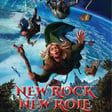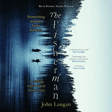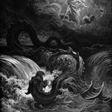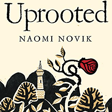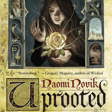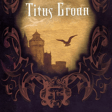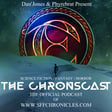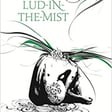
Sandman with Tade Thompson
We're joined today by Tade Thompson, the multi award-winning author of such books as Rosewater, Making Wolf, Far From the Light of Heaven, and the Molly Southbourne novellas. He is also a self-confessed comics junkie, which he proved when he joined us last year to delve into the great WATCHMEN. This year Tade talks with us about Sandman, arguably Neil Gaiman's greatest piece of work, and another example of the comic book medium bursting free from its pulpy roots and demonstrating that it can stand up as art and literature. Sandman's mantelpiece, groaning under the weight of a World Fantasy Award (the only comic to have achieved this), a Bram Stoker Award, and no fewer than 26 Eisner awards, attests to this. The recent and long-awaited Netflix adaptation of Sandman starring Tom Sturridge has also been a worldwide success.
Be warned! This show comes with huge spoilers not just for the first couple of volumes of Sandman, which have been adapted by Netflix, but for the whole comic book series, and we will be discussing the final ending. You have been advised!
We talk about the psychoanalytic and mythological structures that form the foundation of Sandman, and particularly the characters of Dream and his siblings. We discuss our capacity as humans to use our dreams to simulate strategies in the waking world, and why dreams rub up against desires. Tade walks us through the history of the Sandman IP, and we pontificate on whether a piece of work such as this can be fully formed in the mind of the author, or whether it was discovered as Gaiman progressed through the telling.
We also discuss horror more generally, reflecting some recent conversations on the Chrons boards, and how to best define that slippery genre. In particular we talk about Tade's most recent novella Jackdaw, a magnificent exploration into obsession, art, the creative act, and its relationship to science.
Elsewhere The Judge wraps up the topic of plagiarism, with some advice to authors on how we can protect ourselves against copyright infringement, or having your work stolen. Important stuff for all writers, so take note. Our winner from January's 75-word challenge is Ashleyne and, staying with our topic of dreams, we see what happens when Captain Halkmilkcarton from Mars Radio 14 attempts to stay awake for three weeks straight.
Listener Poll
Lastly, please fill out our very short poll, which is going to inform some future content we're bringing to the show.
Next Month
Next month we'll be joined by none other than Bryan Wigmore, author of the Fire Stealers series, including The Goddess Project and The Empyreus Proof, to talk about John Boorman's 1981 cinematic take on the Arthurian myth, Excalibur.
Index
[0:00:00 - 0:51:23] Tade Thompson talk part 1
[0:51:24 - 54:53] Skit 1
[0:54:54 - 1:08:18] - The Judge's Corner
[1:08:19 - 1:09:51] - 75-word challenge winner
[1:09:52 - 1:12:25] - Skit 2
[1:12:25 - 2:01:46] - Tade Thompson talk part 2
[2:01:46 - 2:03:43] - Credits and close



